🏠
Awaab’s Law: what you need to know
Effective from 27 October 2025, Awaab’s Law is a new legal requirement for social housing landlords in England. It ensures that serious health hazards in your home - especially damp, mould, and emergency issues - are dealt with quickly and effectively. This law was introduced following the tragic death of two-year-old Awaab Ishak in 2020, caused by prolonged exposure to mould in his home. His family’s repeated complaints were ignored, highlighting the urgent need for change in how housing hazards are handled [1].
🔍 What does Awaab’s Law cover?
Phase 1 (from October 2025):
Landlords must respond to:
- Emergency hazards (eg gas leaks, exposed wiring, broken heating in winter).
- Damp and mould that poses a significant risk to health.
Future Phases:
- 2026: Will include hazards like excess cold/heat, falls, fire risks, hygiene, and electrical safety.
- 2027: Will expand to cover nearly all housing health hazards (except overcrowding) [2].
⏱️ What should you expect from Coastline?
Once we become aware of a hazard (this is called “Day Zero”), we must follow strict timelines:
For Emergency Hazards:
- Investigate and fix the issue within 24 hours.
- If your home can’t be made safe, provide alternative accommodation immediately.
- Written summary of findings within 3 working days [1].
For Significant Hazards (like damp and mould):
- Investigate within 10 working days
- Written summary within 3 working days of investigation.
- Safety work completed within 5 working days
- Further work started within 5 working days, or within 12 weeks if delays are unavoidable
- Alternative accommodation must be provided if the home can’t be made safe in time [2]
👥 A person-centred approach
We must consider your individual health and circumstances. For example:
- If you have asthma or another respiratory condition, damp and mould may pose a greater risk.
We cannot blame lifestyle (eg cooking or bathing) for mould without proper investigation.
This means we must treat each case with care and sensitivity [1].
🛡️ What if we don't act?
If we fail to meet these requirements:
- You can take legal action for breach of contract.
- You can also complain through your landlord’s complaints process or the Housing Ombudsman Service [2].
📣 What you can do
- Report hazards promptly to Coastline.
- Keep records of your communications and any health impacts.
- Ask for updates and written summaries of investigations.
- If needed, seek advice from support services or the Housing Ombudsman.
💬 Need help?
If you're unsure about your rights or how to report a hazard, contact your us or visit the Housing Ombudsman’s Awaab’s Law page [3].
References



